CPAR Sem 2 Quarter 3
1/87
There's no tags or description
Looks like no tags are added yet.
Name | Mastery | Learn | Test | Matching | Spaced |
|---|
No study sessions yet.
88 Terms
Which of the following best describes "contemporary art?
It is a religious art.
It is a traditional art.
It is the art of the present.
It is the art of the past.
It is the art of the present.
Who/What defines contemporary art as "art made and produced by artists living today."?
J. Paul Getty Museum
Fernando Amorsolo
Leo Benesa
Leonardo da Vinci
J. Paul Getty Museum
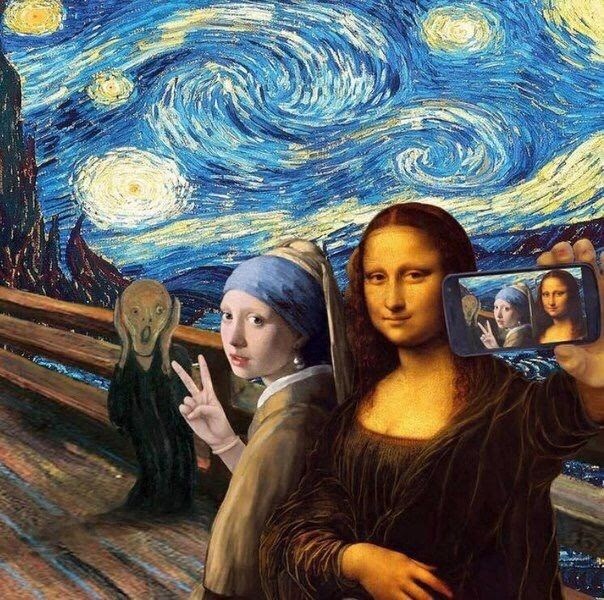
What element and principle of contemporary art is shown in this example?
Space
Hybridity
Technology
Appropriation
Appropriation
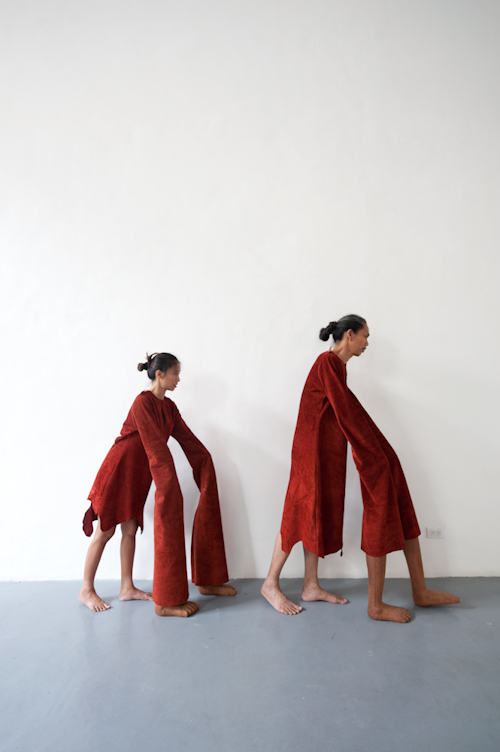
What element and principle of contemporary art is shown in this example?
Technology
Hybridity
Space
Performance
Performance
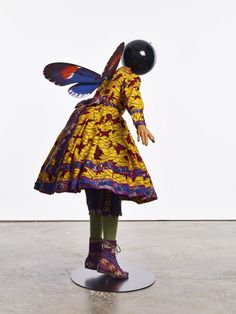
What element and principle of contemporary art is shown in this example?
Space
Visual
Hybridity
Performance
Hybridity
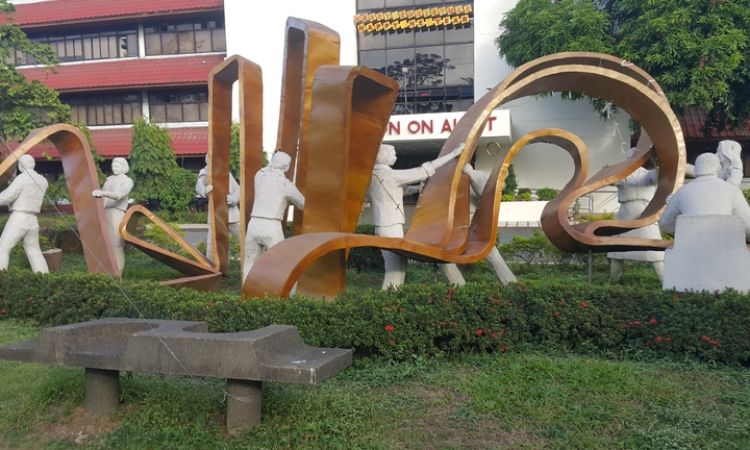
What element and principle of contemporary art is shown in this example?
Architecture
Space
Visual
Performance
Space
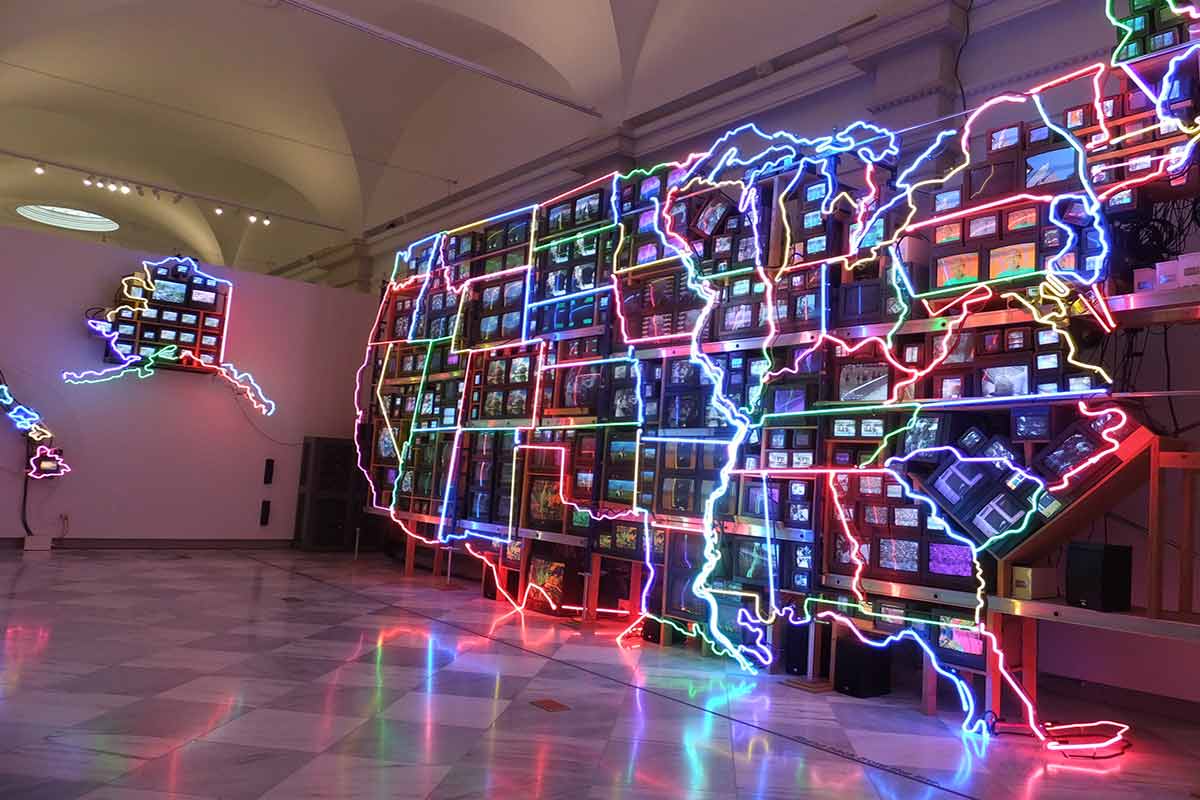
What element and principle of contemporary art is shown in this example?
Technology
Space
Performance
Visual
Technology
The Binondo Church in Manila was built in the 17th Century.
True
False
False
Ronald Tolentino describes that the Filipino writing in today's world contains the diasporic experience and the incorporation of both rural and urban experience.
True
False
True
Cecile Guidote-Alcaraz was the founder of Philippine Educational Theater Association.
True
False
False
Philippine Popular Art is the art which is accepted and followed by the Filipino masses.
True
False
True
The nobela is one of the most read forms of literature in the country. Example of this is Mars Ravelo's Darna.
True
False
False
Ang Diary ng Panget, she's dating the gangster, and Talk Back and you're Dead were products of Precious Heart Romances and it had been adapted into movies and TV series.
True
False
False
Filipino pop music has tried to mimic foreign musical genre.
True
False
True
Francis Magalona pioneered the rapping genre in the Philippines.
True
False
True
This government owned corporation was created to promote the local film industry in general. It funded the art of films such as Peque Gallaga's Oro, Plata, Mata and Ishmael Bernal's Himala.
Experimental Cinema of the Philippines
PETA
Baguio-based Film Makers
Kidlat Tahimik
Experimental Cinema of the Philippines
He was awarded as the Knight of the Order of Arts and Letters in 2014 by the French Government.
Brilliante Mendoza
Adolfo Alix
Jerrold Tarog
Nico Garcia
Brilliante Mendoza
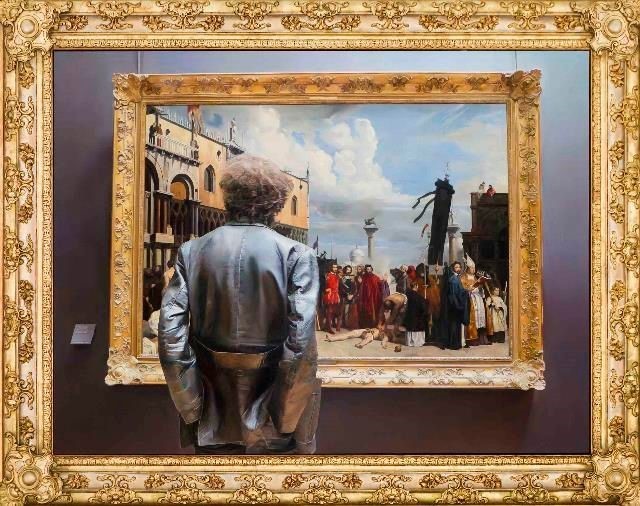
Whose work was shown in the picture?
Kiko Escora
Annie Cabigting
Ed Lacson
Joshua Lim So
Annie Cabigting
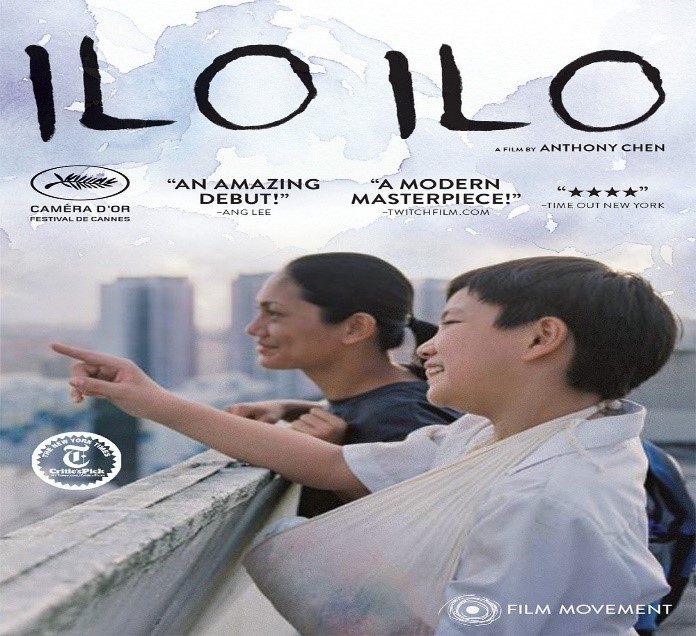
Whose work was shown in the picture?
Angeli Bayani
Annie Cabigting
Sohpia Lee
Ed Lacson
Angeli Bayani
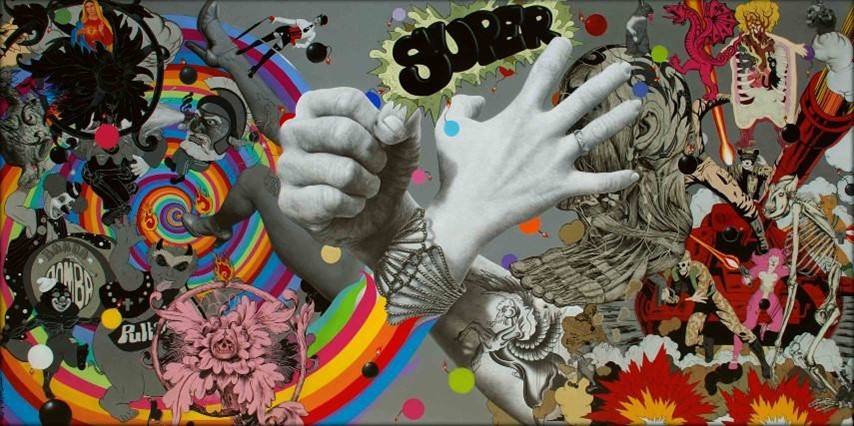
Whose work was shown in the picture?
Ronald Ventura
Kiko Escora
Angeli Bayani
Ed Lacson
Ronald Ventura
Art
Imitation of life and the world.
Aristotle on Art
he said that Humans have natural instincts for imitation and harmony.
Forms of Artistic Expression
Picture, Sculpture, Architecture, Music, Literature, Theater, Cinema, Dance.
Leo Benesa's View on Art
He says that art Depicts everyday life and surroundings without idealization.
Contemporary Art
Not confined to traditional spaces; explores new techniques and materials.
J. Paul Getty Museum’s Definition of Contemporary Art
Art made and produced by artists living today.
Appropriation
Reusing existing artworks to create new ones.
Performance
Focuses on spontaneity and unpredictability.
Space
Art that transforms the space it occupies.
Hybridity
The combination of different mediums and unconventional materials.
Technology in Art
Use of modern tools (e.g., video, internet) for creating and spreading art.
Philippine Popular Art
Art widely followed and accepted by the Filipino masses.
Forms of Philippine Popular Art
Literature, Music, Dance, Movies.
Komiks
One of the most widely read forms of literature in the country.
OPM (Original Pinoy Music)
Filipino music genre popularized nationwide.
Dance Craze
Popular dance trends like Spaghetti and Otso-Otso.
Mainstream Philippine Cinema
Big-budget, commercially driven films.
Philippine Independent Cinema
Unconventional narratives, experimental styles, artistic storytelling.
Brillante Mendoza
Known for neorealist films depicting ordinary lives in extraordinary situations.
Metro Manila Film Festival (MMFF)
Features mainstream and independent films during the holiday season.
Cinemalaya
Independent film festival held at the CCP.
Cinema One Originals
Hosted by Cinema One.
CineFilipino
Privately initiated independent film festival.
National Artist Award
Highest honor for Filipino artists, conferred by the President.
NCCA's Role in the Award
Administers the nomination and selection process.
Presidential Proclamation No. 1001, S. 1972
Established the National Artist Award.
Qualifications for National Artist Award
Filipino Citizenship – Only Filipino citizens can be awarded.
Contribution to Nation-Building – Work must impact Philippine culture.
Pioneering Work – Influence on future artists.
Artistic Excellence – Demonstrates outstanding skill and vision.
National and International Recognition – Achievements must be acknowledged locally and abroad.
Awards and Privileges of the National Artist Award
Title of "National Artist" – Official recognition of excellence.
National Artist Insignia – Gold-plated medallion from BSP.
Cash Award – ₱200,000 for living awardees, ₱150,000 posthumous.
Monthly Stipend – ₱30,000 for life.
State Funeral Benefits – Up to ₱500,000.
Place of Honor – In state functions and cultural events.
Francisco Arcellana
Pioneer of modern Filipino short stories in English. Known for lyrical prose-poetic form.
N.V.M. Gonzalez
Fictionist, essayist, poet, and teacher known for capturing the Filipino spirit.
Nick Joaquin
Most distinguished Filipino writer in English.
Coined the term "Joaquinesque" for his unique style.
Explored Philippine colonial past and social changes
F. Sionil Jose
Best known for the Rosales Saga
Advocated for national sovereignty and social justice.
Jose Garcia Villa
Known for comma poems and reversed consonance rime scheme.
Used the pen name Doveglion (Dove, Eagle, Lion).
Edith Tiempo (1919-2011, Awarded 1999)
Renowned poet, fictionist, and literary critic.
Known for The Little Marmoset, Bonsai
Virgilio S. Almario (Rio Alma)
Poet, literary historian, critic, and modernist advocate.
Led discussions on Philippine poetry and mentored young writers.
Amado V. Hernandez (1903-1970, Awarded 1973)
Known for socially conscious writing and activism.
Imprisoned for his involvement in the communist movement.
Carlos P. Romulo (1898-1985, Awarded 1982)
Served as President of the United Nations General Assembly.
Journalist, diplomat, and writer.
Ang Kiukok
imbued with nationalist fervor and a sociological agenda
Some of his famous works include: Geometric Landscape, Dog Fight, Pietà.
Victorio C. Edades
Father of Modernism in Philippine Art
dark and gloomy, depicting Filipino laborers in their daily struggles.
Cesar Legaspi
pioneer of the Neorealist movement in the Philippines.
His works juxtapose the mythical and modern, exuding intensity and social commentary.
Fernando Amorsolo (1892-1972)
The first National Artist of the Philippines,
Grand Old Man of Philippine Art.
His works depict the rich rural landscape of the Philippines.
Notable works: Rice Planting, Defense of a Filipina Woman’s Honor, Planting
Rice (1946), Sunday Morning Going to Town (1958)
Carlos “Botong” Francisco (1912-1969)
A muralist from Angono, Rizal, known for his massive historical murals.
His works vividly depict the legendary courage of the Filipino ancestors.
Juan Nakpil
Advocated for a distinctly Philippine architecture that reflects local traditions and culture.
Designed the 1937 International Eucharistic Congress altar and reconstructed the Quiapo Church in 1930.
Notable works: Geronimo de los Reyes Building, Magsaysay Building, Rizal Theater, Capitol Theater, Manila Jockey Club, University of the Philippines Administration Building (Quezon Hall), Reconstructed Rizal Shrine in Calamba, Laguna.
Pablo Antonio
A pioneer of modern Philippine architecture
Notable works: Far Eastern University Administration and Science Buildings, Manila Polo Club, Ideal Theater, Lyric Theater, Galaxy Theater, White Cross Orphanage.
ldefonso P. Santos Jr.
Pioneer of landscape architecture in the Philippines.
Notable works: Paco Park, Tagaytay Highlands Resort, Mt. Malarayat Golf and Country Club, The Orchard Golf and Country Club.
Leandro V. Locsin
His style, characterized by floating volume and the duality of light and heavy elements, transformed Philippine architecture.
Designed 75 residences, 88 buildings, including 11 churches and chapels, 23 public buildings, six major hotels, and an airport terminal. Cultural Center of the Philippines, Folk Arts Theater, Philippine International Convention Center, The Phil-CITE Westin Hotel
Francisco T. Mañosa
Advocated local identity and traditions.
Notable works: Coconut Palace (Tahanang Pilipino), Amanpulo Resort, EDSA Shrine, San Miguel Building.
Jose Maria Zaragoza
His designs reflect progressive modernism in post-war Philippine architecture.
Notable works: St. John Bosco Parish, Santo Domingo Church, National Shrine of Miraculous Medal, Meralco Building, Greenhills Shopping Center, Redesigned Quiapo Church interior
Lauro "Larry" Alcala (Visual Arts)
Created over 500 characters and 20 comic strips published in widely circulated newspapers and magazines. Iconic work: "Slice of Life", a comic series that humorously illustrated everyday Filipino experiences.
Amelia Lapeña-Bonifacio (Theatre)
Grand Dame of Southeast Asian Children's Theatre
Integrated puppetry, children's literature, folklore, and theater, creating unique productions for young audiences.
Designed and produced puppets for her theatrical works.
Ryan Cayabyab (Music)
A composer, arranger, and musical director
Some of his most popular compositions:
"Kay Ganda ng Ating Musika"
"Da Coconut Nut"
"Kailan"
"Can This Be Love"
"Limang Dipang Tao"
"Kumukutikutitap"
"Tuwing Umuulan at Kapiling Ka"
"Paraiso"
Kidlat Tahimik (Eric de Guia) (Film and Broadcast Arts)
Recognized as a pioneer of independent and postcolonial cinema in the Philippines.
Known for advocating "Third Cinema," a movement critical of imperialism and oppression.
Francisco "Bobby" T. Mañosa (Architecture)
Dedicated his 60-year career to designing structures that reflect Filipino identity.
His works championed the use of native materials and traditional Filipino design elements.
Resil B. Mojares (Literature)
A teacher, scholar, essayist, fictionist, and historian who significantly contributed to the study of regional literature and history. Founder and director of the Cebuano Studies Center, which helped promote Cebuano literature and identity.
Ramon Muzones (Literature)
A Hiligaynon poet, novelist, essayist, short story writer, critic, grammarian, and lexicographer.
Wrote an unprecedented 61 completed novels, spanning from the 1940s to the 1970s.
GAMABA Categories
Folk Architecture, Maritime Transport, Weaving, Carving, Performing Arts, Literature, Graphic and Plastic Arts, Ornaments, Textile or Fabric Art, Pottery
REWARDS OF BEING A ‘MANLILIKHA NG BAYAN
1. A specially designed gold medallion.
2.An initial grant of Php 100,000.
3.A monthly stipend of Php 10,000 for life.
4.An additional personal allowance of Php 14,000 if needed.
5.Annual medical and hospitalization benefits of Php 750,000.
6.Funeral assistance and a tribute fit for a National Living Treasure.
PROCESS OF SELECTING THE ‘MANLILIKHA NG BAYAN’ AWARDEE
Search and Documentation
Evaluation and Screening
Recommendation and Proclamation
The Gawad sa Manlilikha ng Bayan Committee submits recommendations to the National Commission for Culture and the Arts (NCCA).
The NCCA Board approves and forwards the names to the President of the Philippines for proclamation.
Ginaw Bilog (Literature)
Preserved the Ambahan, a pre-colonial poetic form written in Baybayin script.
Masino Intaray (Music and Oral Tradition)
A poet, epic chanter, storyteller, and musician from Makagwa Valley, Palawan. basal (gong), kulilal (lyric song), bagit (instrumental music), aroding (mouth harp), and babarak (ring flute).
Samaon Sulaiman (Music)
A master of the kutyapi, a two-stringed lute.
Lang Dulay (Weaving)
Master T’boli dream weaver, known for the T’nalak fabric made from abaca fibers.
Salinta Monon (Weaving)
Recognized for her ability to identify and replicate traditional Bagobo textile patterns.
Alonzo Saclag (Performing Arts)
A cultural master who dedicated his life to preserving Kalinga
dances, music, and instruments.
Revived the playing of the Kalinga gangsa (gongs).
Federico Caballero ( Epic Chanting)
Dedicated to documenting and promoting the epics and oral literature of Panay.
Uwang Ahadas (Music)
Nearly blind, he mastered playing Yakan musical instruments.
Darhata Sawabi (Weaving)
A master weaver of Pis Syabit, a traditional Tausug tapestry worn as a head covering.
Eduardo Mutuc (Metal Craft)
A master in silver, bronze, and woodwork, specializing religious and secular art.